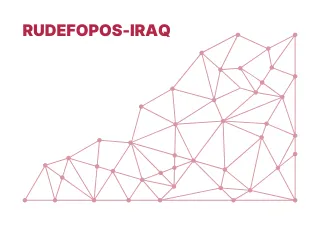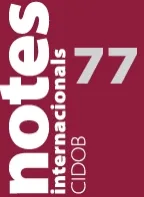RUDEFOPOS-IRAQ
Rural Development, Food Security and Political Stability in Iraq
Rural Development, Food Security and Political Stability in Iraq (RUDEFOPOS-IRAQ) is a project that is funded by a Marie Curie grant of the European Commission. It analyzes current challenges of food security in Iraq, opinions about such challenges among Iraqi academics and experts and the history of the multilateral UN embargo against Iraq in the 1990s based on Iraqi archival sources.

Rural development and food security are crucial for Iraqi economic development and political stability but have received relatively little attention in comparison to other aspects of Iraq’s domestic political economy and its international relations like oil and hard security issues.
RUDEFOPOS-IRAQ assesses what role food security and rural development have played in the politics of current and former regimes in Iraq, how such politics have played out in the prevalent networks of patronage and rent distribution and how they have affected international relations of the country, most notably during the Oil-for-Food Program episode of the 1990s and in the hydropolitics with Turkey and Syria.
Iraq is the only country in the Middle East of which domestic archives exist. The archives of the Iraqi government and the Baath party were brought to the US after 2003 and are now at the National Defense University in Washington and the Hoover Institution at Stanford University. RUDEFOPOS-IRAQ takes advantage of these exceptional archives in addition to newspaper sources, data by international organizations, grey material, a survey and interviews. It then links back its specific findings with the existing literature about Iraq’s political economy and international relations in general.
In particular RUDEFOPOS-IRAQ
a) Analyzes the current process of regime transformation and the role of RUDEFOPOS in it
b) Gives an overview of agricultural and food trade policies since the 1950s when economic planning and oil windfalls began
c) Gives the first account of the Oil for Food sanctions based on Iraqi sources
d) Analyzes the Iraqi stance in hydropolitics along Euphrates and Tigris
e) Analyzes Iraqi expert opinions about food security based on a survey
f) Derives a scenario analysis of risks and opportunities and gives policy recommendations based on a)-e)
Project related:
- “Food Security in Iraq: Results from Quantitative and Qualitative Surveys,” Food Security, Vol. 9, Issue 3, (2017) 511-522
- “Agriculture and Development in the Wake of the Arab Spring,” International Development Policy, Vol. 7, Issue 1 (2017)
- "Agriculture as a Funding Source of ISIS: A GIS and remote sensing analysis," Food Policy, Vol. 64, October 2016, 14–25 (with Hadi Jaafar)
- “Agriculture and Development in the Wake of the Arab Spring,” International Development Policy, forthcoming, Spring 2016
-“MENA Food Trade Relations with Tropical Countries,” Food Security, December 2015 (with Martin Keulertz)
– “Environment, Food Security and Conflict Narratives in the Middle East,” in Global Environment, Vol. 7, Issue 2, 2014, 490-516
- “Mining Strategies in the Middle East and North Africa,” Third World Quarterly, Vol. 35, Issue 6, 2014, 939-957
- “More to Come? The Refugee Situation in the Middle East and the EU,” Notas Internacionales 127, Barcelona Centre for International Affairs (CIDOB), September 2015
- “Food Security in Iraq: Politics Matter”, IFPRI-Arab Spatial, Arab Food and Nutrition Security Blog, 2 May 2017
- “It’s not funded just by oil and looting. How the Islamic State uses agriculture,” Monkey Cage Blog, Washington Post, 27 September 2016 (with Hadi Jaafar)
– “How Long Will ISIS Last Economically?” Notas Internacionales 98, Barcelona Centre for International Affairs (CIDOB), October 2014
– “The Myth of Climate and Water Wars in the Middle East,“ (in Spanish) El Pais, 8 May 2015
Indirectly related (similar topics):
- "The Water-Energy-Food Nexus in Arid Regions: The Politics of Problemsheds" in Oxford Handbook of Water Politics and Policy, Ken Conca and Erika Weinthal (eds.) (Oxford ; New York 2016) (with Martn Keulertz, Jeannnie Sowers and Rabi Mohtar)
- Oil for Food. The Global Food Crisis and the Middle East (revised paperback edition) (Oxford: Oxford University Press 2015)
- “States as Actors in International Agro-Investments,” International Development Policy, Fall 2015 (with Martin Keulertz)
- "The Water–Food–Energy Nexus: An Introduction to Nexus Concepts and Some Conceptual and Operational Problems." International Journal of Water Resources Development (2015): 1-11 (with Tony Allan and Martin Keulertz)
– “Financial Challenges of the Nexus: Pathways for investment in water, energy and agriculture in the Arab world,” International Journal of Water Resources Development, Spring 2015 (with Martin Keulertz)
– “The Atlantic Trade of Agricultural and Mineral Commodities,” in German Marshal Fund of the United States (GFMUS) and OCP Policy Center, Atlantic Currents. An Annual Report on Wider Atlantic Perspectives and Patterns (Washington D.C.; Rabat, October 2014) 33-49
– “Historic Food Regimes and the Middle East,” in Zahra Babar and Suzi Mirgani (eds.) Food Security in the Middle East (London: Hurst and New York: Oxford University Press 2014)
– “The Gulf and Asia: Cooperation or Competition for Food Security?” in Sara Bazoobandi (ed.), The Politics of Food Security. Asian and Middle Eastern Strategies (Berlin; London: Gerlach Press 2014), 17-34
- Future of Syria, Report, (Barcelona: IEMed, EuroMeSCo, GPOT, 2017) (with Mensur Akgün, Sylvia Tiryaki, Omar Sheira, Michael Asiedu, Nazlı Ersoy, Sena Kekeç, Salam Kawakibi, Jordi Quero and Eduard Soler)
– “Syria’s War Economy and Prospects of Reconstruction,” Notas Internacionales 77, Barcelona Centre for International Affairs (CIDOB), September 2013
-“Syria Under Stress: Did Drought Trigger the Crisis in Syria?” Footnote1, 12 September 2013 (with Jeannie Sowers and John Waterbury)
-“What Do Syrians Eat? Food and the War Economy,” openDemocracy, 12 September 2013


